ADON Latashia Simmons: Bringing joy through personal interaction
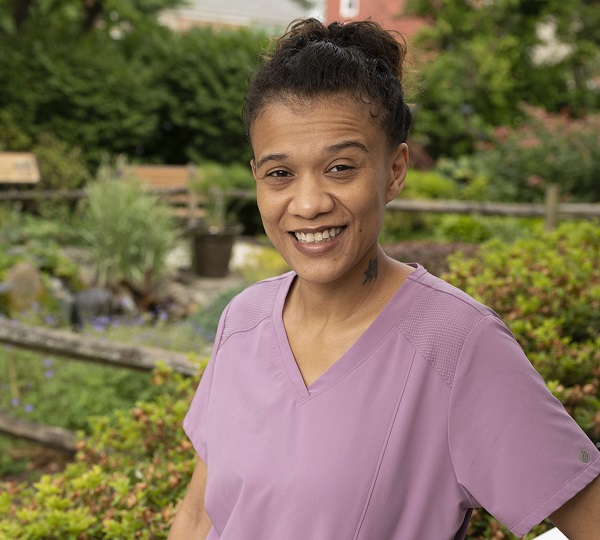
One of Latashia Simmons’ daughters is 13 and doing well, but around age 4, she was diagnosed with cancer. That experience inspired Latashia to become a registered nurse.
“Back then, I always said that once her treatments were done, I would go to school, and that’s what I did,” Latashia says. “Now she wants to be a nurse.”
Latashia has been with Homeland for 11 years, initially as a CNA providing direct care for residents. Today she is the Assistant Director of Nursing/Clinical Liaison, working with the team to ensure quality care.
“I absolutely love it here,” she says. “There’s teamwork. I love the residents. When my daughter was sick, it was like my therapy to come into work.”
Her daughter’s time in the health care system planted the seed for Latashia to put her career in high gear.
“I was there for her emotionally and everything, but I felt so hopeless,” she says. “I wanted to be able to help people.”
She went on to earn her LPN, RN, and associate degree. Next year, she will complete her bachelor’s degree from U.S. University.
“I’ve always been a climb-up-the-ladder person,” she says, recalling her early years at a McDonald’s, moving from crew to assistant manager to manager. “That’s kind of what I do. I climb up.”
At Homeland, Latashia is a floater supporting the other Assistant Directors of Nursing, or ADONs, as they’re known. She covers their units when they go on vacation or take a leave of absence.
When COVID shut Homeland’s doors, family members especially appreciated the support that Latashia and her coworkers gave the residents.
“Everyone came together during COVID,” she says. “That brought it out more, and it’s still here.”
Most of her work concentrates on Homeland’s skilled care unit, but she also loves interacting with residents in personal care.
“Everybody knows me over there, too,” she says. “I just like chit-chatting all over the place. A lot of residents have watched me grow. They all watched me go to school. A resident from personal care came to one of my graduations.”
She likes to say that learning all she can is one of her superpowers.
“It helps me with critical thinking, and I try to apply that to my everyday workflow,’’ Latashia says. “In nursing, you learn something new every day.”
Latashia has lived in the Harrisburg area since she was 10 or 11, but in her early years, she traveled with her Air Force dad to Florida, New Mexico, Alaska, and Philadelphia.
When she’s at home, she turns down the stress levels from her busy days by reading or watching movies.
“I like a lot of sci-fi stuff like werewolves and vampires,” she says. “I like romance novels, too. I watch a lot of Hallmark Channel.”
Latashia has four children, all living at home, ranging in age from 11 to 21. The family recently bought a house in the Harrisburg area and welcomed a new puppy, a blue-eyed pit bull.
“He’s so cute,’’ she says. “I’ve always wanted to get a dog for the family. The kids all just love him.’’
Back at work, every degree and promotion Latashia has earned makes her job busier, but that’s okay.
“No matter how busy I am, I still make time for the residents,” Latashia says. “It’s important for me to feel like I made a difference.”

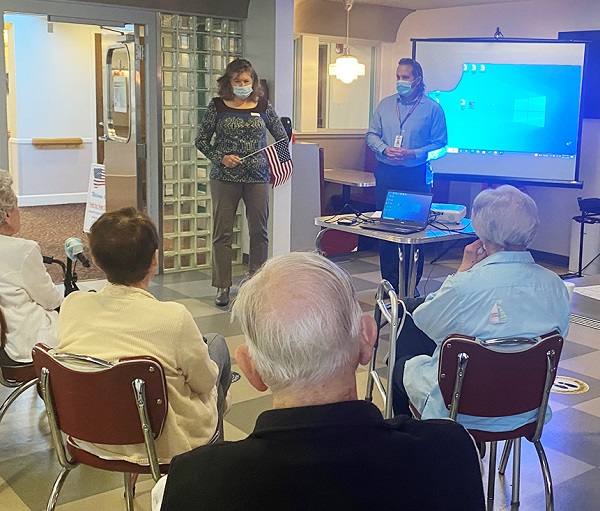
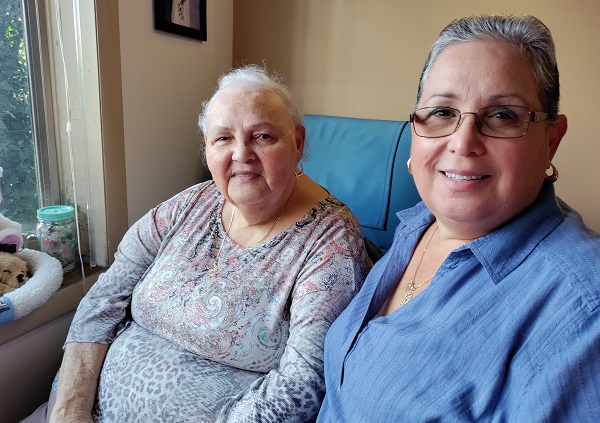
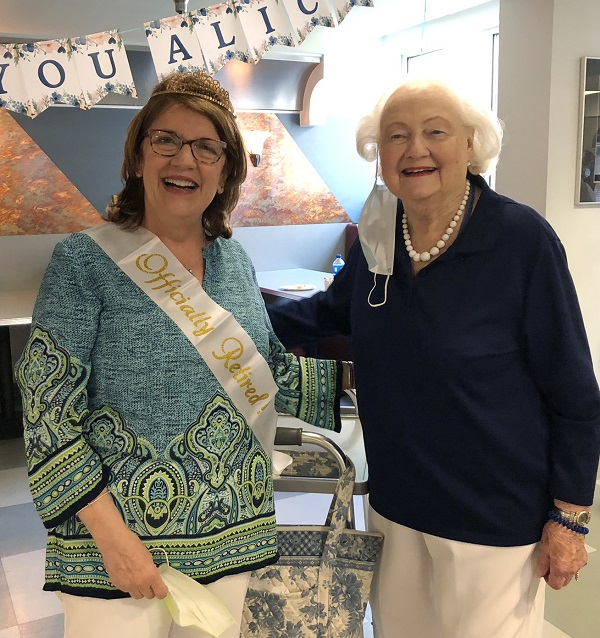
 “When I left IBM, I thought I already had had the world’s best job,” Alice says. “I was working from home. I was working with people all around the world. It was interesting. Well, let me just say it didn’t compare to the opportunity I had with Homeland in terms of building relationships and making a difference in a very personal and tangible way with the residents, families and colleagues.”
“When I left IBM, I thought I already had had the world’s best job,” Alice says. “I was working from home. I was working with people all around the world. It was interesting. Well, let me just say it didn’t compare to the opportunity I had with Homeland in terms of building relationships and making a difference in a very personal and tangible way with the residents, families and colleagues.”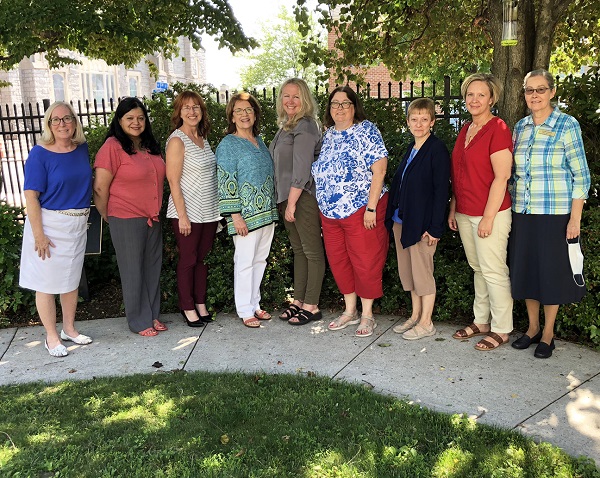 COVID canceled that event, but not the resident’s enthusiasm. Until his death, he kept practicing for the hoped-for performance.
COVID canceled that event, but not the resident’s enthusiasm. Until his death, he kept practicing for the hoped-for performance.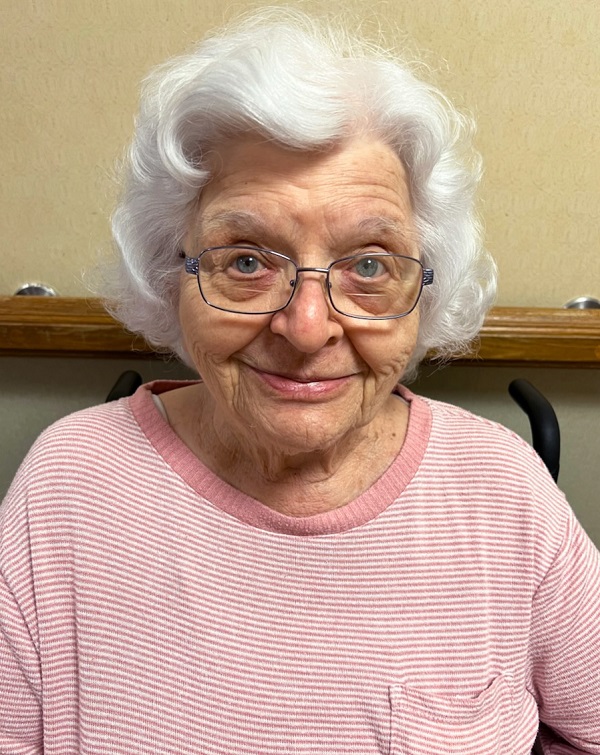
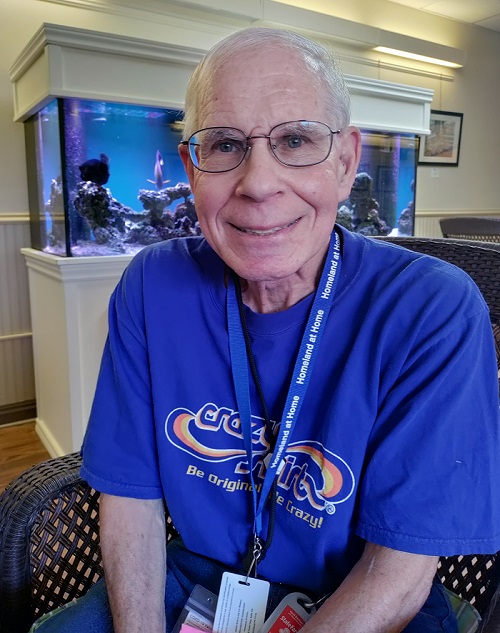
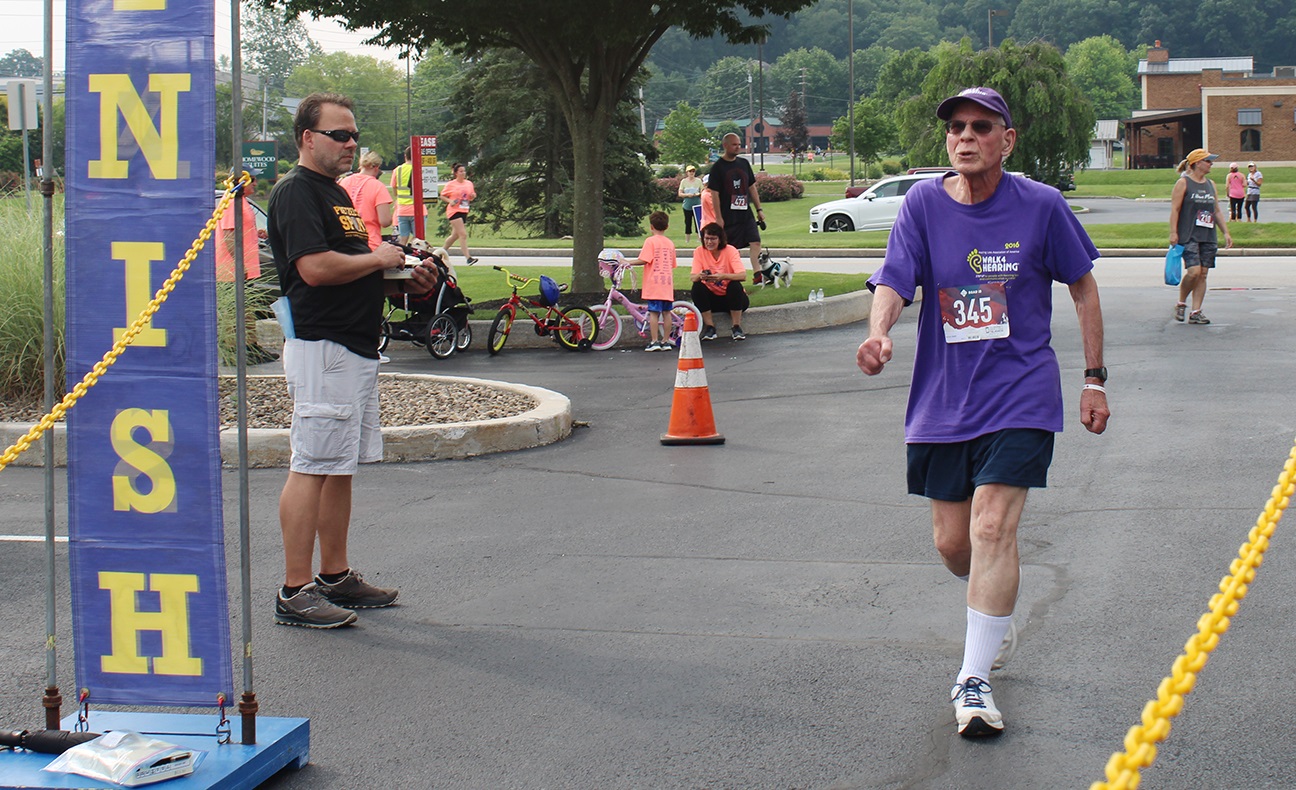 David retired from the Navy in 2012 and moved back to Harrisburg in 2018. Since 2019, he has filled his days with volunteering – delivering Meals on Wheels Friday mornings, helping at Homeland Center on Thursday afternoons. On Sunday mornings, you’ll find him at the Dauphin County Library System’s East Shore Area Library, where he set a personal record of 92 books shelved in three hours.
David retired from the Navy in 2012 and moved back to Harrisburg in 2018. Since 2019, he has filled his days with volunteering – delivering Meals on Wheels Friday mornings, helping at Homeland Center on Thursday afternoons. On Sunday mornings, you’ll find him at the Dauphin County Library System’s East Shore Area Library, where he set a personal record of 92 books shelved in three hours.
